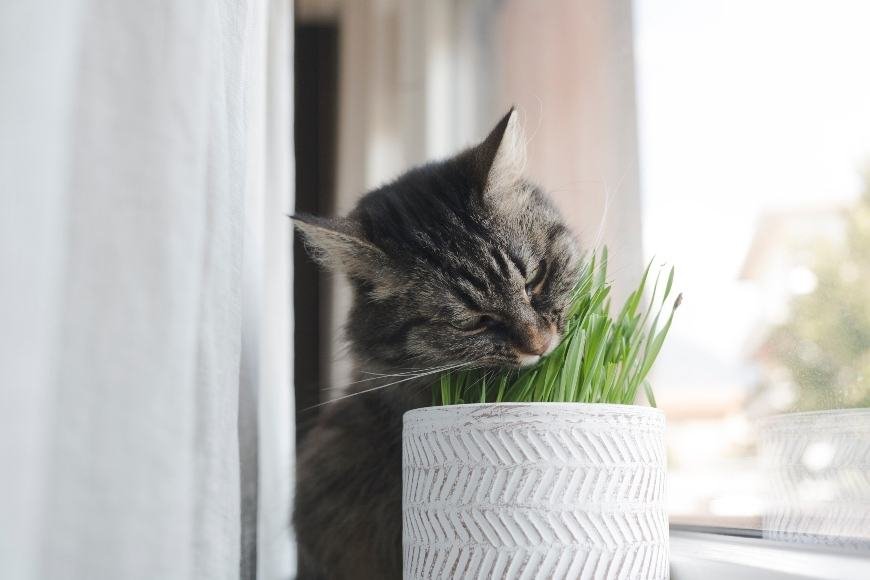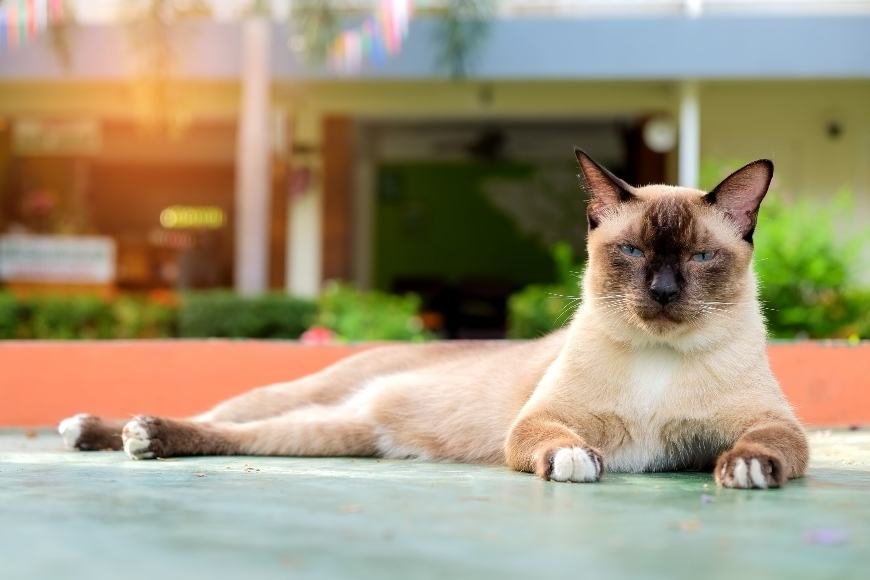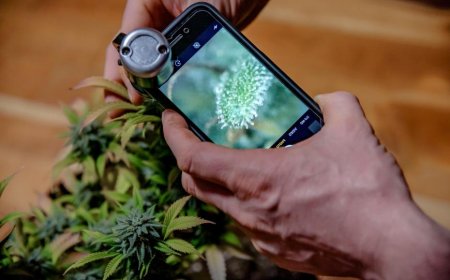What Is Catnip?
Discover the surprising effects of Catnip (Nepeta cataria) on both humans and animals in this informative article, exploring its history, uses, and safety.

As a popular herb among recreational drug enthusiasts, catnip (Nepeta cataria) has sparked interest for its various effects on both humans and animals. This article will investigate the background of catnip's usage and how it became known as an alluring herb.
Before trying out this natural substance, we will consider the potential benefits and drawbacks of catnip on humans. Furthermore, we'll discuss the fascinating reactions observed in animals when exposed to catnip's unique aroma.
Lastly, safety is paramount; thus, we will address any concerns regarding the responsible consumption and cultivation of Nepeta cataria. Stay tuned to discover more about this intriguing herb known as catnip.
Table of Contents:
- What is Catnip?
- History of Catnip Use
- Effects of Catnip on Humans
- Effects of Catnip on Animals
- Safety of Catnip
- FAQs in Relation to Catnip
- Conclusion
What is Catnip?
Catnip (Nepeta cataria) is a perennial herb belonging to the mint family. Nepeta cataria is a worldwide species, having spread from its native range of Europe, Asia and Africa to North America. The plant grows up to three feet tall with leaves that are heart-shaped or ovate in shape. Its flowers, ranging from white to pink or lavender, bloom during mid-summer until early fall and emit an irresistible aroma that cats love. Catnip also has an unmistakable aroma that cats find irresistible.
The scientific name for catnip is Nepeta cataria, which comes from its Latin name nepeta meaning “cat” and cataria meaning “belonging to cats” - a fitting description given its appeal among felines. Catnip contains volatile oils such as nepetalactone, caryophyllene oxide, limonene and other compounds which give it its unique smell. This scent triggers an instinctive response in cats; they will often roll around on the ground after sniffing it or rub their face against it while purring contentedly.
For centuries, humans have utilized catnip for various purposes - from medicinal to recreational; some societies even employ it in spiritual ceremonies or rituals due to its sedative effects when consumed orally. In traditional medicine, people used dried leaves as tea for treating colds and headaches as well as relieving stress and anxiety symptoms like insomnia and nervousness. Some cultures even believed that consuming small amounts of this plant could help induce prophetic dreams.
Cat owners might be familiar with the reaction their pet has when exposed to this fragrant herb: rubbing against objects containing the plant material or rolling around on top of them before eventually becoming more relaxed than usual - all signs of euphoria caused by inhaling the active ingredients within it. But what exactly does this substance do? Let's delve deeper into how these chemicals can have diverse effects on humans (and animals)...
Catnip, a perennial herb native to Europe, Asia and Africa that has been used medicinally for centuries, contains the active ingredient nepetalactone which can have calming or stimulating effects on cats. Its active ingredient, nepetalactone, can produce calming or stimulating effects in cats when inhaled or ingested. Now let's explore the history of catnip use over time.
History of Catnip Use

Evidence of catnip's use dates back to ancient Egypt, with its medicinal properties being embraced by European herbalists during the Middle Ages. Historically, catnip was thought to possess curative properties and employed as a medicinal herb. In the Middle Ages, it was a common herb among herbalists in Europe who thought that it could aid with symptoms of colds and influenza. Catnip has become a popular remedy for insomnia and anxiety in recent years, due to its calming effects on both humans and animals.
Evidence suggests that Native Americans may have consumed catnip for thousands of years prior to its use in ancient Egypt. They would typically make tea from the leaves or smoke them in order to experience their relaxing effects. Catnip continued to be used throughout colonial America where it was commonly prescribed by doctors for various ailments such as headaches, stomach aches, colic and fever relief.
Nowadays, catnip can be found easily in shops across North America either fresh or dried to take advantage of its calming properties without the need for cultivating their own plants. It can be brewed into a tea or smoked like tobacco although these methods are not recommended due to potential health risks associated with inhaling smoke from any type of plant material including catnip leaves. Many people choose instead to mix small amounts into food or drink recipes which helps reduce stress levels while providing other beneficial nutrients such as vitamin C, iron and magnesium all at once.
The popularity of using this natural remedy continues today, largely in part due to its relatively safe nature when taken responsibly - something that cannot always be said about prescription medications which often come with a long list of side-effects attached. Additionally, many people find that they enjoy the subtle yet pleasant taste that comes along with consuming catnip; making it a great way to relax after a long day without feeling groggy afterwards like you might after taking certain pharmaceutical drugs.
Catnip has long been employed medicinally and recreationally, yet its use remains largely obscure. Research into the impacts of catnip on humans is only recently being studied by experts.
Effects of Catnip on Humans
Nepeta cataria, commonly known as "cat's plant" due to its Latin name, has been used for centuries as an herbal remedy. Its scientific name is Nepeta cataria, which means “cat’s plant” in Latin. Humans may also experience a tranquilizing effect from catnip.
The active ingredient in catnip that causes its effects is called nepetalactone. This compound binds to receptors in the brain and can cause mild sedative or stimulant effects depending on how much of it you take. At lower amounts, nepetalactone can be stimulating like caffeine; however, more substantial doses may lead to sedative-like reactions.
When taken orally or smoked, some people report feeling relaxed and even euphoric after consuming catnip tea or smoking dried leaves of the plant. The intensity of these feelings will depend on how much was consumed and individual body chemistry. Catnip has the capacity to lessen inflammation when used topically on skin conditions like bug bites or rashes caused by allergies. It may also help reduce stress levels due to its relaxing effect on the body and mind when ingested or inhaled through vaporization methods like vaping pens with liquid concentrates containing nepetalactone extractions from the plant material itself
Though its effects on humans are still largely undiscovered, further investigation is necessary to uncover the full scope of catnip's influence. Going ahead, it is critical to contemplate the potential advantages that animals could experience from consuming this plant and how it may affect them.
Effects of Catnip on Animals

Catnip, otherwise known as Nepeta cataria, is an herb from the mint family that has been utilized for many years to help with different issues. It is particularly popular among cats and other animals because of its sedative effects. The active ingredient in catnip is nepetalactone, which binds to certain receptors in cats’ brains and causes them to become relaxed or even euphoric.
The response of creatures to catnip can be dissimilar depending on the type. Cats are most commonly affected by it; when exposed to catnip they may roll around, purr loudly, rub their face against objects or meow excessively – all signs of pleasure and contentment. Cat owners have employed catnip to soothe their cats in tense situations, such as vet visits or car rides.
Rabbits can also be affected by the scent of catnip; some will become very energetic while others may appear more relaxed than usual. Similarly, guinea pigs have been observed exhibiting behaviors like running around in circles after being exposed to it. Dogs too can experience mild sedation when exposed to the scent but typically don’t react with quite as much enthusiasm as cats do.
Ferrets are one species that doesn't seem to be overly impressed with catnip - they tend not show any noticeable reaction at all. However, if you want your ferret friends feeling extra chill then try adding some fresh leaves into their bedding – they might just surprise you.
In terms of safety concerns related specifically towards animals, there aren’t many worries associated with using catnip recreationally (or medicinally). If consumed in large quantities over an extended period of time, however, it could potentially lead to digestive issues so moderation should always be practiced when giving out treats.
Catnip's consequences on animals can be multifaceted and intricate, however it is mostly accepted to be a harmless material for them. Moving on from this, let's look at the safety considerations when using catnip in humans.
Safety of Catnip
Nepeta cataria, more commonly known as catnip, is a long-used herbal remedy with an extensive history of medicinal application. Catnip, or nepeta cataria, has been employed for ages as a medicinal herb and is sometimes consumed or smoked to generate an innocuous psychedelic experience. The safety of catnip use is an important consideration when considering its recreational use.
The most common side effects associated with the ingestion of catnip are nausea and vomiting, dizziness, headache, increased heart rate and blood pressure, confusion and anxiety. In certain situations, catnip ingestion may lead to hallucinations or delusions which could be hazardous if not monitored and managed correctly by health care professionals.
In addition to the potential physical side effects of using catnip recreationally there are also psychological risks associated with its use such as paranoia and psychosis. Long-term users have reported symptoms such as depression, aggression and suicidal thoughts so caution should be taken if planning on using this substance regularly.
Smoking catnip can have adverse effects on the lungs, such as irritation and coughing fits, with potential long-term risks including tar build up that could lead to cancer; thus caution should be exercised. Therefore, it is important for users to exercise caution when indulging in this activity.
Therefore, it is wise to use caution when using Catnip medicinally or recreationally in any situation where drug testing may be conducted without prior warning. Therefore, discretion should always be exercised when using this plant medicinally or recreationally, especially at work-related events where random testing may occur without warning or notice given beforehand.
FAQs in Relation to Catnip
What does catnip actually do to cats?
Catnip is a herb that contains nepetalactone, an essential oil which triggers certain responses in cats. When cats smell the catnip, they may become excited and playful or display signs of aggression such as growling and swatting. The cat's response can be fleeting, though it could last up to a ten-minute span prior to wearing off. In some cases, cats will also consume catnip which can cause them to act sedated or drowsy. Cat owners should be aware of their pet's behavior when exposed to this substance as it could potentially lead to adverse reactions if over-consumed.
What are the disadvantages of catnip?
Catnip, a herb with a long history of being used as an herbal remedy, can have adverse effects if consumed in large quantities. In large amounts, catnip can cause nausea, vomiting or diarrhea in cats and humans alike. Catnip may interact with other medications or supplements and should be avoided by pregnant women due to potential risk of miscarriage. Additionally, catnip can lead to excessive meowing and hyperactivity when ingested by cats. Finally, there is evidence that the plant contains compounds which could potentially affect hormones or alter behavior when consumed over long periods of time; therefore caution should be exercised before using catnip regularly.
Does catnip have any benefits for humans?
No, catnip does not have any proven benefits for humans. While cats may experience a calming effect from the herb, there is no evidence that it has similar effects on people. There are also no studies to suggest that consuming or inhaling catnip can provide any medicinal benefits to humans. Furthermore, consuming large amounts of catnip may be detrimental as it includes volatile oils and other elements that can potentially lead to adverse effects in certain people.
What is in catnip that makes cats go crazy?
Catnip contains a chemical compound called nepetalactone which cats find irresistible. The plant's nepetalactone-containing oils, found in its leaves and stems, are what give cats such an irresistible reaction. When cats smell this pungent oil, it triggers an intense reaction that causes them to become very active or playful, meow loudly, rub their face against the source of the scent, and even drool. The effects usually last for around 10 minutes before wearing off.
Do cats really enjoy catnip?
Yes, cats do enjoy catnip. Catnip contains a chemical called nepetalactone that triggers reactions in cats' brains and noses. When they smell it, many cats become more active and playful. They may also rub their face against the plant or roll around on the ground to get more of its scent. Some even drool or meow when exposed to catnip, indicating pleasure from its effects. Catnip is safe for cats and can be a great way to provide enrichment.
What are some basic facts about catnip?
Catnip, also known as Nepeta cataria, is a perennial herb from the mint family. It has been used for centuries by humans and cats alike to promote relaxation and well-being. Catnip contains an essential oil called nepetalactone which is responsible for its sedative effects on cats. Humans can also experience mild sedation when consuming it in tea or tincture form. Catnip may be beneficial for easing headaches, settling stomachs, and soothing menstrual discomfort.
Conclusion
In summary, catnip has a long history of being employed medicinally and can have mild effects on humans as well as acting like an stimulant for cats and other felines when smelled or ingested. Its effects on humans are mild but can be beneficial in certain cases. It also has an interesting effect on animals as it acts like a stimulant when ingested or smelled by cats and other felines. Despite its potential uses, it's important to remember that moderation should always be practiced with any substance use so you don't experience unwanted side effects from overuse of the plant material itself or other ingredients mixed into products containing catnip extract.
Discover the latest news and information on cannabis, magic mushrooms, psychedelics and other substances at Azarius. Uncover helpful solutions to your questions with our comprehensive blog posts.






































































































































